Dante Read online
Page 9
It was a mask Dante had seen many times before.
Deliberately, the Sanguinor strode across the deck towards Dante. His Sanguinary Guard moved aside. They would not have stood in the way of the Sanguinor had Dante ordered them to.
The Sanguinor came to a halt before the commander. The face of Sanguinius looked into the face of Sanguinius. A sensation of wrongness took hold of Dante. He felt presumptuous, standing before this avatar of their primarch, wearing his face. He rarely removed the mask in public nowadays. Let the men of the Imperium take heart from the sight of Sanguinius’ golden face, he thought; he had come to terms with the effect the mask had on others, even if it had at first disquieted him. Warriors responded to the visage of the primarch. Sanguinius’ face and Dante’s deeds had become indivisible, welded together in the crucible of legend. So be it.
But there was a reason for concealing his own face that went beyond pragmatism. As the years had coursed by, Dante had aged. He was old, and he looked it.
He only reluctantly revealed his face, though he was honest enough to see his motives had as much to do with pride. Many of the younger Chapter members had never seen him without his helm. To them, his was the face of Sanguinius, as the face of death was the face of the Chaplaincy.
Standing before the Sanguinor so masked lacked humility.
He hesitated, torn between the needs of preserving his own legend and acknowledging his individuality. His men had their heads bowed. None of them were looking at him.
Sudden determination moved his hands to his helmet. He disengaged its seals and removed the death mask of Sanguinius smoothly and quickly, exposing his face to the Sanguinor.
A distorted version of Dante was reflected in the burnished chest armour of the Sanguinor. Dante knew it well. His golden hair had turned as white as the Sanguinor’s wings. The skins of ancient Space Marines became thick, seamed with shallow wrinkles akin to the cracks in leather. Dante had gone beyond that. Deep wrinkles covered his face, sharpening the fine bone structure of his gene-father to the point of brittleness. His eyes remained pale amber and clear as the morning, the same as his long-dead birth father’s eyes, but they were sunk into their sockets. The skin about his neck had begun to gather the first signs of loose folds.
Without the medium of helm lenses, the Sanguinor appeared unbearably bright. Light shone from every surface of its armour. Once, an inquisitor had challenged Dante as to the true nature of the Sanguinor. Dante had replied the Sanguinor could be nothing other than pure. He had come face to face with the being on many occasions. Always, he had felt close to his gene-father in its presence, and comforted by his love for his sons. Almost like Sanguinius himself were there.
The Sanguinor stared down at him. Dante was diminished by its gaze.
‘Why have you come, my lord?’ Dante said, bowing his head. ‘Have I failed? Have you come to condemn me for this defeat?’
The Sanguinor stared back at him in silence. In one hand it held its chalice, but it did not offer it to Dante’s lips. Its sword was in its hand, but it did not seek for Dante’s neck. If it were there to weigh Dante’s actions, it had not determined its judgement.
‘Are these events the will of our primarch? Is his hand at work here?’
There were no words. The Sanguinor was ever silent.
Dante dropped his voice to a whisper. ‘Is there hope? Can Baal be saved?’
Dante expected no reply. There was not a single record of the Sanguinor ever speaking. The presence of the Sanguinor seemed to swell, and fill his vision with its purity and its light. Ferocious in battle, a great peace surrounded it now, and it settled on Dante like a blessing.
‘There is yet hope,’ said the Sanguinor.
With a rush of air, it vanished. Amazed voices rose up all over the hangar.
‘It spoke! The Sanguinor spoke!’ voices called.
Dante replaced his mask with shaking hands. Ordamael came rushing to him, his black boots ringing off the deck.
‘What did it say? Never before has the Sanguinor said a single word. What did it say to you?’ he said. In his excitement, he grasped Dante’s pauldron.
‘It said, there is yet hope,’ he whispered. He gripped Ordamael’s arm, then turned to face the wider room. ‘That there is yet hope!’ shouted Dante. His rich voice, unchanged by age, boomed from his helm, and he invested it with the confidence his warriors expected. ‘The Sanguinor has spoken. We shall prevail!’
His warriors cheered. The blood thralls broke into song at seeing so holy a sight.
Dante could not share their optimism, not in his heart of hearts. He watched them a moment, proud and sad, and turned back to the window, ignoring the rush of questions Ordamael bombarded him with. Disappointed, the Chaplain saluted and left him alone.
Outside of the windows, Asphodex was still dying, a spark to light a conflagration that would consume the galaxy.
CHAPTER SIX
ANGEL’S LEAP
456.M40
Heavenwall Mountains
Baal Secundus
Baal System
The pass continued down the mountains, out into fresh deserts of grey sand studded with thorny trees. Columns of dust hung over caravans of nomad vehicles in the distance. Dominating the plain were the remains of a vast city, the spires at its centre still tall twelve thousand years after the rest had been cast down in nuclear fire.
‘The Ghost Lands,’ said Luis. ‘The cities of the dead!’ The scope of the ruins was hard to fully grasp. Even though much of it had been covered over by shifting dunes, the city was many times the size of Kemrender or even Selltown.
‘That means we’re nearly there,’ said Florian without expression. He bade Luis turn to the east again to follow a trail that went up and down the mountainsides. They followed this for two days until it joined with a road paved with pitted rockcrete patched with cobbles. More trails wended their way up to meet the road on long flights of stairs, and they began to pass other travellers. Merchants led long trains of chained pack slaves by, angrily shoving them aside. Lone pilgrims were friendlier. They talked with these people, some of them families.
‘We’re going to see the leap,’ one boy said as his parents smiled indulgently. ‘Are you going to jump?’
Florian laughed and ruffled his hair.
The father was delighted that his son had been paid attention to by potential aspirants. ‘Sanguinius’ blessings upon you, my boys!’ he called after them, and gave them a bottle of precious water.
Florian waved cheerily back at them. Luis was gladdened to see the plainsman return to himself. Other families gave them food and shared news of lands far distant. Their eyes shone at the prospect of breaking bread with the boys, that they might eat with future angels.
Tinkers and itinerant craftsmen solicited them for trade until they saw the boys had nothing they could offer, and moved on. ‘We go to the trial,’ Luis said, to those who approached them, and they shook their heads and shouted, ‘Good luck!’ and went on their way. There were men of more unsavoury aspect moving through the growing traffic, too; whether the boys’ own travel-worn look protected them, or their sacred quest to reach the trial, Luis could not say. These lands, and their customs, were foreign to him.
Before long they met other youths like themselves. Boys of their age, sometimes younger, but none with beards, the last marker of manhood. Many carried the packs and bone tubes of the angel’s wings. Others, some of them savage in appearance, seemed just as confused by the devices as Luis had been.
The tubes were surprisingly light, and Luis quickly learnt from Florian how to carry them the most efficient way: resting on his shoulders, with his right hand draped over the edge to steady them. Several times Luis had a look through the pack, but could make no sense of what he was supposed to do with the broad spreads of membranous leather and their thongs and tying points.
The road was wide and well maintained; the slopes became stairways. Wells were set every ten miles, open to use by all. Inscrip
tions in the high tongue proclaimed them the gifts of the lords of Baal. Thirst ceased to trouble them.
‘Baal Secundus,’ said Florian, laboriously reading one such inscription, ignoring the angry jostling of the men behind him. ‘What’s that?’
‘That’s here,’ said Luis, fighting to fill his bottles amid the jostling travellers. ‘It’s the angels’ name for Baalfora. Baalind is Baal Primus.’
‘What’s Baal then?’ said Florian.
Luis pulled a face. ‘That’s just Baal, yes?’ A rough hand grabbed at him and pulled him away from the well. ‘Watch it!’ he said. A man with a rad-scarred face jabbered at him in a dialect Luis couldn’t understand. ‘Let’s move on. I don’t like it here,’ said Luis.
The stairs steepened, winding their way back up into the mountains, narrowing and crushing the people together. They saw more and more youths making their way to the Angel’s Leap. A few nods of acknowledgement were the friendliest signs that passed between them. They were rivals, and at times the looks they received were openly hostile.
At a point higher than any the boys had yet ascended, the stairs reached the end of their climb, abruptly switching downwards over a sharp ridge into a hanging valley. To the east rose an enormous, bare-shouldered mountain composed of unnaturally smooth sandstone that looked impossible to climb. Streaks of snow marked its lofty head like clawed scars. Florian drew Luis’ attention to a flash of gold on the peak.
‘The High Statue,’ he said. ‘The angels mark the place Sanguinius was said to have landed after his first flight. Here, at Angel’s Leap, he trusted his wings for the first time and took to the air. This is holy ground, my friend. Can you believe it?’
The valley was crowded with a city-sized camp of people. Tents and stalls spread colours across the dull stone. Massive pens held food animals. There were no vehicles; all of the teeming masses had come on foot to witness the would-be aspirants take their flight of faith.
To the west, the valley ended dramatically over a giant canyon, the far side tinted yellow by the dusty distance. On the very brink of the valley rose a tall pinnacle of black rock, thrust out from the red stone as violently as a sword through flesh. It leaned out precariously, westwards over the canyon.
Luis’ heart flipped at the sight. Crowds of youths clustered around its base, tiny as salt mites. At its tip figures flexed wings and leapt. Flocks of what looked like birds but which had to be boys like himself circled on the thermals. A few dived down into the canyon, and soared away. Others alighted, coming from the opposite direction along the currents of the Wind River.
‘From that column Sanguinius first flew,’ said Florian. His eyes gleamed.
‘Is this the only way?’ Luis said weakly.
‘Not the only way, but the quickest. It’s days on foot to Angel’s Fall from here through the mountains, the Cracked Lands and worse. You can do it in ten hours if you fly. People from the deserts and the mountains see the leap as a test of manhood, and my father said that the angels look favourably on those who make their way to Angel’s Fall by the Wind River. The river is dangerous, and blood eagles haunt its side valleys, but if you pass them all, you’re on the way to being chosen. It’s practically part of the trial. You’re lucky you met me,’ said Florian. Then, the cheer drained from his voice, and he mumbled. ‘You’re lucky Daneill died. You’d have no wings otherwise.’
Luis could only nod in response, too numb to offer words of comfort to his friend. His mouth was dry, and not just from the altitude. The floor of the canyon wasn’t visible from where they were. It must have been a drop of five thousand feet at least. On the edge of hearing a rushing, booming noise impinged on the sounds of hawkers and entertainers below.
‘That’s the Wind River,’ said Florian.
‘I’ve never flown before,’ said Luis. The thought sickened as much as it exhilarated him.
‘Then you better learn quick,’ said Florian. He laughed and punched Luis in the shoulder. ‘Don’t worry. Messengers come this way from out of the Ghost Lands to Angel’s Fall all the time. Most of them don’t die.’
They went lower, watching as more figures jumped from the pinnacle. ‘Some of them are leaving now, but there will be a race,’ Florian explained. ‘Whoever wins that is sure to be chosen, or so they say.’ He asked around to ensure they knew the day it would occur.
‘We’re leaving tomorrow,’ he said after one conversation. ‘We’re just in time. The race will begin in the morning.’
As they descended, the camp seemed to grow in size. More people were arriving, coming down the narrow stairs into the valley in a long stream. Tents and awnings were anchored over ancient dry stone wall bases. Luis hadn’t expected this, but the Trial was evidently good business. Men and women sold water and salt, food of all types, even fresh vegetables grown in far-off geodesic domes, to the crowds. A good many of these people proved to be the parents of potential aspirants.
Florian looked longingly at the wares on display as they pushed their way through the throngs. When Luis produced his stack of lead coins, his eyes bulged.
‘You could have bought your own wings with that! I was wrong about you, salty. You’re full of surprises.’
‘Never judge a man by his outer being, that’s what they say,’ said Luis, and bought them hot food and water.
‘It’s true,’ smiled Florian round a mouthful of food.
There was a carnival air to the camp at Angel’s Leap. Shawms and windpipers played late into the night. The shouts of competing preachers extolling the virtues of the angels and the Emperor echoed from the mountains, intermingling with the cries of hucksters selling relics, or tonics to aid those undertaking the trial, or promising the best vantage points for the great departure. Bookkeepers took bets on favoured members of various clans.
Florian and Luis joined the other youths around the base of the spire, away from the press of adults and the haze of dung-fire smoke. Overspill from the Wind River raced between the rocks, stirring up dust devils that spooked the more suspicious among them. The main current roared on down the canyon in endless exhalation.
A trickle of the youths wended their way upwards, determined to leave before the others. All strategies, thought Luis. He doubted getting out early mattered. He doubted winning the so-called race mattered. The angels weren’t likely to choose on that basis alone. He questioned the wisdom of flying by night, even though Florian maintained certain clans preferred it.
The food was plentiful, the water welcome; a feast it seemed after days of short meals. They spoke a little about the coming day. Florian explained how the wings worked.
‘Your arms go into the loops. I’ll show you how. Your feet into the stirrups. It’s not hard, you just got to feel the wind. Push back with your feet – it bends the wing struts, makes you soar up. Relax your feet, the opposite. Dip your arms to turn. Don’t try to flap like a bird, it don’t work. You’ll get it.’ He left unsaid that if Luis didn’t get it, he would die.
Luis tried his best to remember, but the more he concentrated on what Florian said, the more important details seemed to slip from his mind. Florian talked about stalling, that if he fell, he had to get his arms out straight, make sure he was the right way up. Luis was sure he hadn’t understood properly. He was half terrified, half excited that soon he might fly like the blessed Sanguinius.
They ate more. Drank more water than they strictly needed, feeling wicked for their profligacy. Baalind tracked across the sky, Baal was nowhere to be seen.
Florian fell asleep. Though Luis tried to follow him, he could not. All night he lay awake, listening to the noise in the camp quieten as Baalind sailed by and people went to their beds. The canyon roared at Firstnight, the Wind River quickening with the nightwind, dying back when truenight fell, but never ceasing, like the wailing of the mothers soon to lose their sons.
Eventually, he fell asleep.
Florian woke Luis. The sky blushed decorously with dawn. A clamour of cymbals and harsh clarions greeted th
e new day. Priests shouted hoarse praises to the Emperor of Man, thanking Him for allowing the sun to return. The wind blew as it had for thousands of years, weaker slightly in the morning, but rising as the sun warmed the deserts that fed it.
‘You all right?’
‘I didn’t think I’d sleep at all,’ said Luis. He yawned, then he remembered what he was to do today. His stomach turned queasy as adrenaline burned tiredness from him.
‘Breakfast?’ said Florian.
Luis looked at the remnants of their supper. ‘I don’t feel like eating,’ he said.
‘Neither do I,’ said Florian. ‘Come on. Better sooner than later.’
‘We should leave our gear. I won’t need it again.’
‘You will,’ said Florian. ‘You’ll need water and food if you crash and survive, and you’ll need money if you’re turned away from the Place of Trials at Angel’s Fall. Leave what you can’t carry, that’s all. You don’t know what will come in useful.’
Luis agreed to the sense of this, so he abandoned only some of their gear. He left behind Daneill’s clothes and those he had taken from the corpse. He took two full bottles of water, and left the rest. He felt a pang of regret as he lay his staff down, but he could not possibly carry that. He touched it gently to feel the grain of the wood one last time.
Once they were behind him, a weight lifted from him, as if he were laying his old life to rest.
A long, winding stair went up to the pinnacle of Angel’s Leap. Many of the youths had roused themselves already and thronged the way. Knots of parents packed the base of the stairs, expressions prideful yet pale with fear for their sons who passed by, their wing poles over their shoulders and packs on their backs. The stone spine was black and glassy, the steps carved into it slippery and their edges still sharp from their carving, though it had been done unimaginably far back in time. More than once a boy slipped, caught and hauled back from his death by the arms of his fellows. Those who fell onto the steps cut themselves, sometimes badly. From time to time aggressive youths would shove their way up, glowering at any who delayed them, but Florian and Luis went patiently, not disturbing the flow.

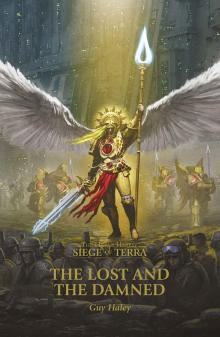 The Lost and the Damned (The Horus Heresy Siege of Terra Book 2)
The Lost and the Damned (The Horus Heresy Siege of Terra Book 2)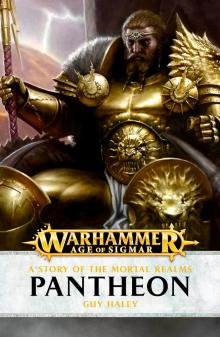 Pantheon
Pantheon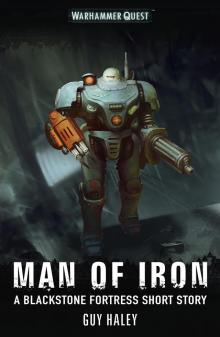 Man of Iron
Man of Iron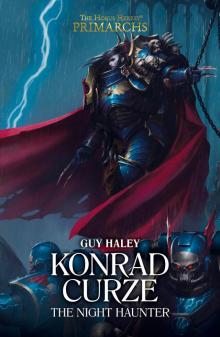 Konrad Curze the Night Haunter
Konrad Curze the Night Haunter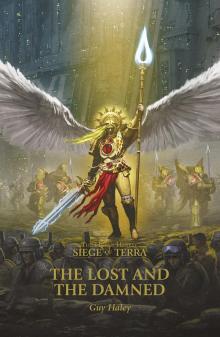 The Lost and the Damned
The Lost and the Damned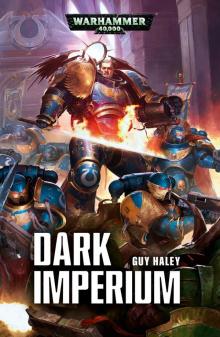 Dark Imperium
Dark Imperium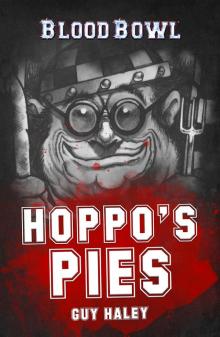 Hoppo's Pies
Hoppo's Pies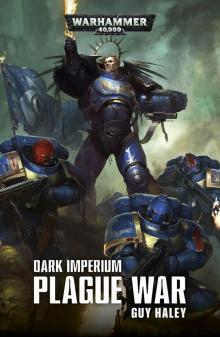 Dark Imperium: Plague War
Dark Imperium: Plague War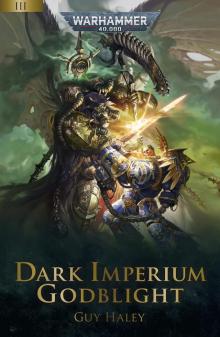 Dark Imperium: Godblight
Dark Imperium: Godblight Crash
Crash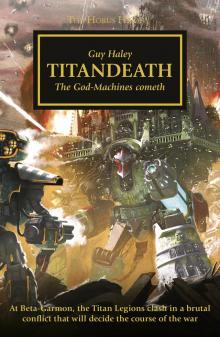 Titandeath
Titandeath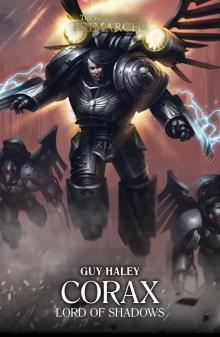 Corax- Lord of Shadows
Corax- Lord of Shadows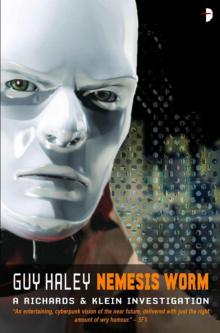 The Nemesis Worm
The Nemesis Worm Wolfsbane
Wolfsbane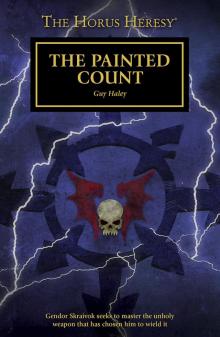 The Painted Count
The Painted Count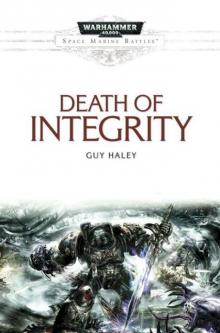 The Death of Integrity
The Death of Integrity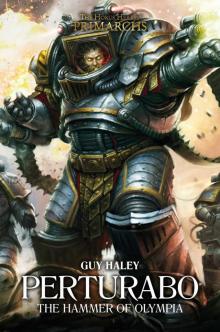 Perturabo: Hammer of Olympia
Perturabo: Hammer of Olympia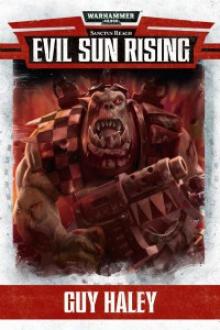 Evil Sun Rising
Evil Sun Rising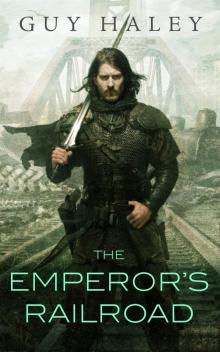 The Emperor's Railroad
The Emperor's Railroad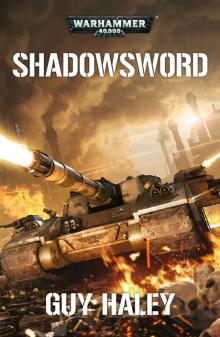 Shadowsword
Shadowsword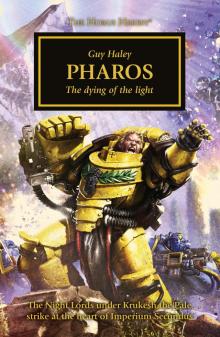 Pharos
Pharos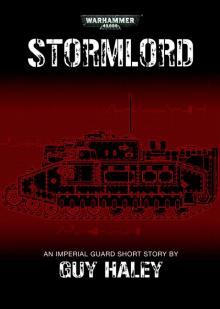 Stormlord
Stormlord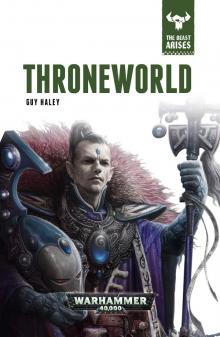 Throneworld
Throneworld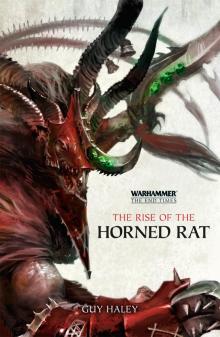 The End Times | The Rise of the Horned Rat
The End Times | The Rise of the Horned Rat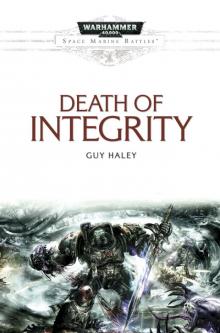 Death of Integrity
Death of Integrity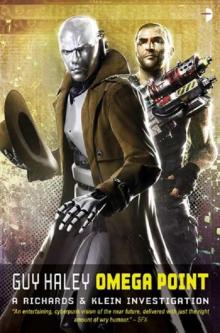 Omega Point
Omega Point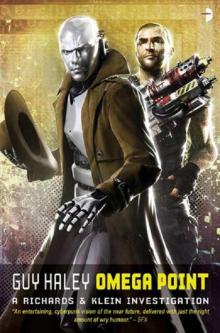 Omega point rak-2
Omega point rak-2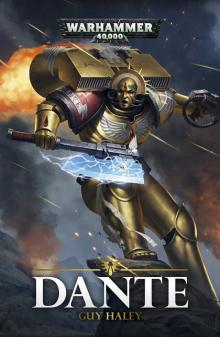 Dante
Dante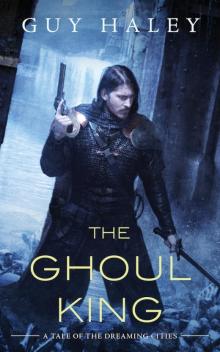 The Ghoul King
The Ghoul King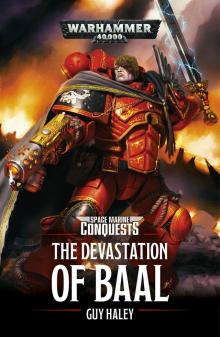 The Devastation of Baal
The Devastation of Baal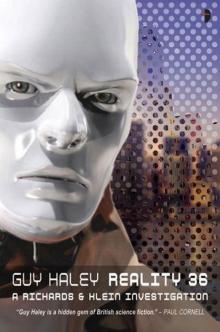 Reality 36: A Richards & Klein Novel
Reality 36: A Richards & Klein Novel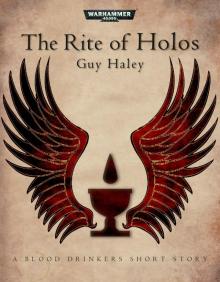 The Rite of Holos
The Rite of Holos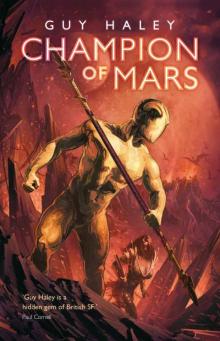 Champion of Mars
Champion of Mars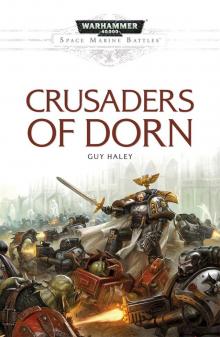 Crusaders of Dorn
Crusaders of Dorn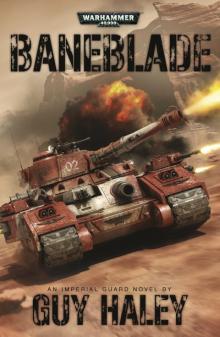 Baneblade
Baneblade